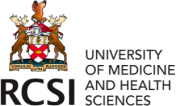Intern (medical postgraduate internship)
Intern Year is the initial year of clinical training following graduation from medical school. It is an essential step in every doctor’s career in Ireland, during which you will experience the reality of patient care in a range of healthcare settings.
During this year, you will gain experience in general medicine, general surgery, and at least one other specialty. An optional academic track allows you to obtain additional academic or management experience during three months of your internship.
Having successfully completed your internship, the Medical Council of Ireland will award your Certificate of Experience, vital for your next steps in medical training.

What is Intern Year?
Intern training provides a combination of education, training, and clinical responsibility, enabling interns to develop the professional and personal competencies that result in good patient care and providing a foundation for lifelong learning. Interns in Ireland work as part of clinical teams as well as in an on-call capacity. Work consists of regular time plus overtime.
Internships are organised by six intern networks, associated with the six medical schools in Ireland. Intern training posts are structured so that all rotations are undertaken within the same intern training network, although not necessarily the same hospital.
Each intern training network is led by an intern network coordinator, who is a consultant doctor with educational experience. The intern network coordinator is responsible for organising and overseeing intern training within their network. They ensure the provision of appropriate, agreed educational programmes that satisfy the Medical Council of Ireland’s criteria for granting a Certificate of Experience.
Intern network coordinators collaborate collectively through the Intern Network Executive (INE) and with the HSE to ensure consistency across the networks.
West/Northwest (NUIG)

Dublin/Northeast (RCSI)
Dublin/Mid-Leinster (UCD)
Dublin/Southeast (TCD)

South (UCC)
Mid-West (UL)
What can I expect during Intern Year?
Intern Year is designed to be both challenging and rewarding, providing graduates with a supervised, supportive learning environment that provides the basis for future practice as a doctor in their chosen field.
Interns must be registered with the Medical Council of Ireland. All consultant trainers need to sign-off for an intern to successfully complete the year and be awarded their Certificate of Experience. This certificate makes you eligible to apply for registration on the trainee specialist division or the general division of the Medical Council, which is required to proceed with your medical career in Ireland.
A Certificate of Experience is also usually required to register with competent authorities in other countries, although you will need to check the registration procedures for any specific country you are planning to continue studying in.
During internship, all interns have access to a suite of supports to enhance their training experience, including the Training Support Scheme and the Clinical Course and Exam Refund Scheme.
What experience will I gain?
Regardless of which network you are in, during your internship you will gain a minimum of three months’ experience in general medicine, three months’ experience in general surgery, and three-to-four months’ experience in one or more of the following specialities:
- Anaesthesia
- Emergency medicine
- General practice
- Obstetrics and gynaecology
- Paediatrics
- Psychiatry
- Radiology
Optional academic track
Interns can also pursue an optional Academic Track Internship, which consists of a three-month project in one of the following areas: clinical research, medical education, or healthcare leadership and management.
There are eight academic track posts nationally, with six academic interns rotating through each post (making a total of 48 academic track interns per year). Academic track interns will take on additional activities during one of their four internship rotations and work on a substantial project, giving them real-world academic and management experience in addition to their clinical experience.
What guidance or support will I have?
You will be assigned an academic supervisor (in addition to your clinical supervisors). The academic supervisor will provide guidance and support while you carry out your project.
What research access will I have?
You will have access to research seminars and workshops, plus additional training and education. There is a bursary available to cover research costs such as bench fees.
Applying for Intern Year
The HSE runs a single annual intern recruitment campaign, which opens each year in October for posts in July the following year. Internship is open to those who are required to gain the Certificate of Experience.
Requirements for application
Applicants need to provide their centile (based on the final or overall exams) to the National Recruitment Service (NRS) by the dean of their medical school (usually before May of the intake year). In addition, they must have graduated on or after 1st April of the year that applications open and on or before June of the year internship is due to commence (dates are updated every year).
Funding supports for NCHDs
There are various educational funding supports available to non-consultant hospital doctors (NCHDs). You’ll find an overview of funding and support schemes in our Supports section.
What’s next after internship?
A senior house officer (SHO) is a doctor who has successfully completed Intern Year and may be undertaking their Basic Specialist Training (BST).
A registrar (Reg) is a non-consultant hospital doctor who has completed a minimum of 24 months (typically as an SHO) post internship.